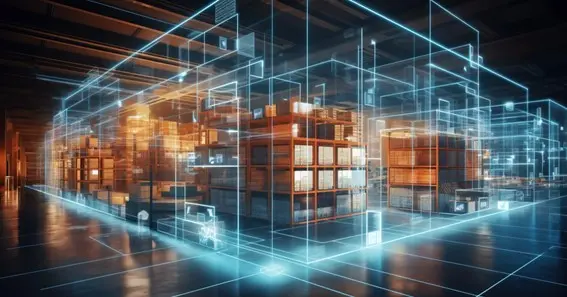Introduction:
The future trajectory of modern warehouse buildings is poised for transformative innovation and technological advancements. As logistics and supply chain dynamics evolve, these structures undergo paradigm shifts, incorporating cutting-edge technologies, sustainability measures, and adaptive designs. Exploring the future outlook and advancements in a modern warehouse building unveils a landscape driven by efficiency, sustainability, and enhanced operational capabilities, reshaping the logistics industry.
Also Read N: The Comprehensive Benefits of Gated Communities in Scottsdale, AZ
Integration of Advanced Technologies
The future of modern warehouse buildings hinges on the integration of advanced technologies. Robotics, automation, Internet of Things (IoT), and artificial intelligence (AI) are revolutionizing warehouse operations. Autonomous robots for inventory management, AI-powered predictive analytics for demand forecasting, and IoT-enabled sensors for real-time tracking will optimize efficiency, accuracy, and responsiveness within warehouse facilities.
Adaptive Designs for Flexibility
Future modern warehouse buildings will prioritize adaptive designs that cater to evolving needs. Flexible layouts, modular construction, and scalable structures will enable quick reconfigurations to accommodate changing inventory volumes, diverse storage requirements, and the integration of new technologies. These adaptive designs ensure scalability and operational agility, allowing warehouses to swiftly adapt to market fluctuations and technological advancements.
Sustainability Measures and Green Initiatives
Sustainability will be a cornerstone of future modern warehouse buildings. Incorporating eco-friendly materials, renewable energy sources, and energy-efficient systems will reduce the environmental impact. Implementing sustainable practices such as rainwater harvesting, solar panels, and green roofs will promote energy conservation and minimize carbon footprints, aligning with the global shift toward eco-conscious logistics practices.
Data-Driven Decision Making and Predictive Analytics
Data-driven decision-making using predictive analytics will be fundamental in optimizing warehouse operations. Leveraging big data analytics and machine learning algorithms will enable warehouses to forecast demand, optimize inventory levels, and streamline supply chain logistics. Real-time data analysis will enhance operational visibility, allowing for proactive decision-making and efficient resource allocation.
Emphasis on Last-Mile Logistics and Urban Warehousing
The future of modern warehouse buildings will focus on last-mile logistics to meet the increasing demands of e-commerce and urbanization. Urban warehouses, strategically positioned closer to densely populated areas, will facilitate faster deliveries and reduce transportation costs. Micro-fulfillment centers and automated lockers within cities will cater to the growing need for swift and efficient last-mile deliveries.
Innovative Evolution: Shaping the Future of Warehouse Buildings
The future landscape of warehouse buildings embodies an era of innovative evolution driven by technology, adaptability, and sustainability. This evolution encompasses integrating advanced technologies, flexible designs, sustainable initiatives, and data-driven strategies. As these structures evolve to meet the dynamic demands of modern logistics, they promise to revolutionize operational efficiency, environmental responsibility, and responsiveness, charting a transformative path for the logistics industry in the coming years.
Conclusion:
In conclusion, the future trajectory of a modern warehouse building is characterized by technological integration, adaptive designs, sustainability measures, data-driven decision-making, and a focus on last-mile logistics. These advancements are poised to revolutionize warehouse operations, enhancing efficiency, sustainability, and responsiveness within the logistics industry. Embracing innovations in modern warehouse buildings ensures a future-ready infrastructure capable of meeting evolving consumer demands, navigating market dynamics, and supporting sustainable and efficient logistics practices. The future of modern warehouse buildings is a landscape defined by innovation and technological integration, reshaping the logistics industry to meet the challenges and opportunities of tomorrow.










